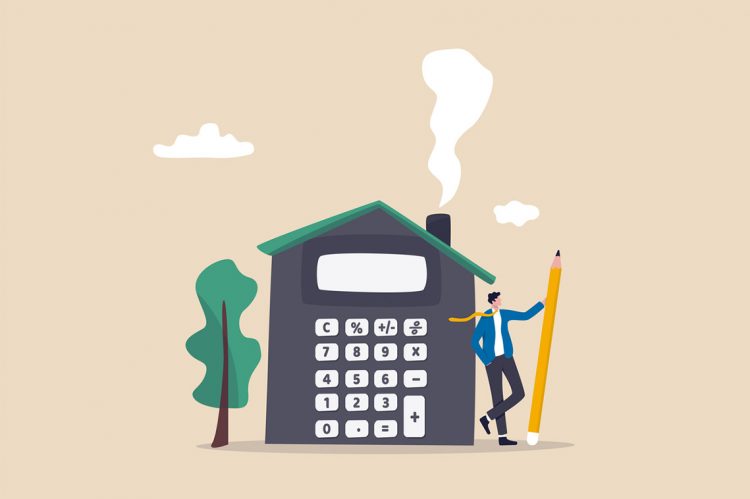In 1997, back when Netscape ruled the web and “Seinfeld” was the most popular show on television, the average American home sold for $172,200. Today, the typical home goes for $456,800, according to HUD.
But, despite nearly a threefold increase in prices, when a home is sold today, the amount of profit exempt from taxation remains pegged at a level established in 1997, when the Taxpayer Relief Act was passed. The bill, passed with bipartisan support and signed into law by President Clinton, allowed homeowners to exclude capital gains of $250,000 or $500,000, or for married filing jointly filers, from taxation when they sell their primary residences—defined as being lived in for at least two out of the past five years.
A number of economists and tax policy experts have perennially suggested raising the threshold or indexing the rate for inflation, but their efforts have been without success. However, given the dramatic surge in home prices in recent years and the apparent intractability of inflation, their recommendations might soon become more salient.
“In 1997, when the new exclusion levels came out, they covered virtually all, say 95% or more, of home sales,” says Evan Liddiard, the director of federal tax policy at the National Association of REALTORS® (NAR). “That level has been degrading every day since then because they didn’t index it for inflation. So now the exclusion is a shadow of what it was before.”
Every day more and more home sales surpass the threshold for capital gains exemptions established decades ago. According to a Congressional Research Service report, 43% of taxpayers in 2022 had sale prices that could potentially expose them to capital gains taxes, compared to just three percent when the provision was enacted.
Importantly, the tax does not affect everyone equally. High-income earners are most likely to surpass the capital gains exemption threshold when selling their homes. In addition, individuals who have owned their homes for long periods of time (allowing large gains to accrue), and individuals living in markets that experience high levels of price appreciation are also affected.
“It’s certainly the case that a lot of people are holding onto their homes for 20 years or more, and the inflation component of those capital gains can be very large,” says Will McBride, vice president of tax and economic policy at the Tax Foundation, a think tank in Washington. “And we are back to forty-year high inflation, so it’s suddenly a more pressing issue.” Nearly one in three homeowners have owned their home for at least 20 years, according to the U.S. Census Bureau’s American Housing Survey.
In addition, coastal states tend to see much higher levels of price appreciation than inland states, with some exceptions, like Idaho. In California, nearly every home owned since before 2000 has more than $250,000 in gains, according to Liddiard, and two-thirds have at least $500,000 in gains. “It’s been a big problem out there for a long time,” he adds.
One of the primary effects of the creeping capital gains tax burden is an increased barrier to labor mobility. Significant distortions are created by the tax liability of gains when an individual or couple owns a home and wants to move. Many homeowners end up putting off selling because they don’t want to or can’t afford to pay the tax.
“We’re talking about seniors who maybe want to downsize because they need to go to a retirement facility or move to a house that’s all on one floor,” says Liddiard. “Those are the ones who are particularly vulnerable.”
Elderly taxpayers who have lost a spouse are also vulnerable since their capital gains exclusions are limited to $250,000, the lower ceiling that applies to singles, unless they sell within two years of their spouse’s death.
Liddiard also points out that a secondary effect of increasing the exemption threshold would be greater housing supply. When individuals choose to hold onto their property on account of the tax burden, “that’s one less home that’s available for somebody else to buy,” he adds.
However, the prospect of a higher gains exemption threshold is not without detractors. Leonard Berman, a fellow at the Urban Institute and author of “The Labyrinth of Capital Gains Tax Policy: A Guide for the Perplexed,” has mixed feelings about it.
For one, he is concerned that increasing the threshold would only be a boon to the rich. “Somebody making $75,000 a year will be fine with the $250,000 or $500,000 exclusion for the foreseeable future,” says Berman.
He also believes a raised threshold could push up home prices. “If you think about what you’re willing to pay for a home,” Bermans says, “and you realize all your capital gains are going to be free from tax as long as you hold it for at least two years, it makes you willing to pay more for the home because you’re going to get that back in tax savings.”
Considering many people cannot afford to buy in the current housing market, exempting more gains, primarily for wealthy individuals, would “harm people with relatively modest incomes,” Berman adds.
It’s not clear how much a higher exemption threshold would push up demand for homes amongst high-income earners and investors. Housing is already treated relatively well, in terms of tax implications, compared to other forms of investment.
Currently, no legislation has been proposed to make any changes to the capital gains on home sales provision. But, Democrats would be the most likely candidates to put forward a bill, either to index the exemption for inflation or to increase the threshold, since blue states tend to experience higher levels of price appreciation.
“I wouldn’t be surprised if there’s more attention paid to this provision now that we have so much inflation and that it’s not transitory,” says McBride. “It appears we’ll be dealing with relatively high inflation for a long time.”
In the meantime, there’s still one tried and true way to circumvent paying a capital gains tax on a primary residence. “A rich person who owns a home with millions of dollars of capital gains can avoid paying the tax by the somewhat drastic expedient of dying,” quips Berman. If an individual holds onto their home until death, it passes to their heirs tax-free.












